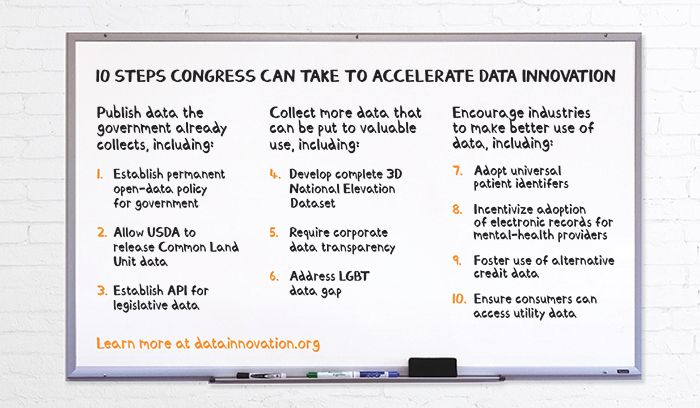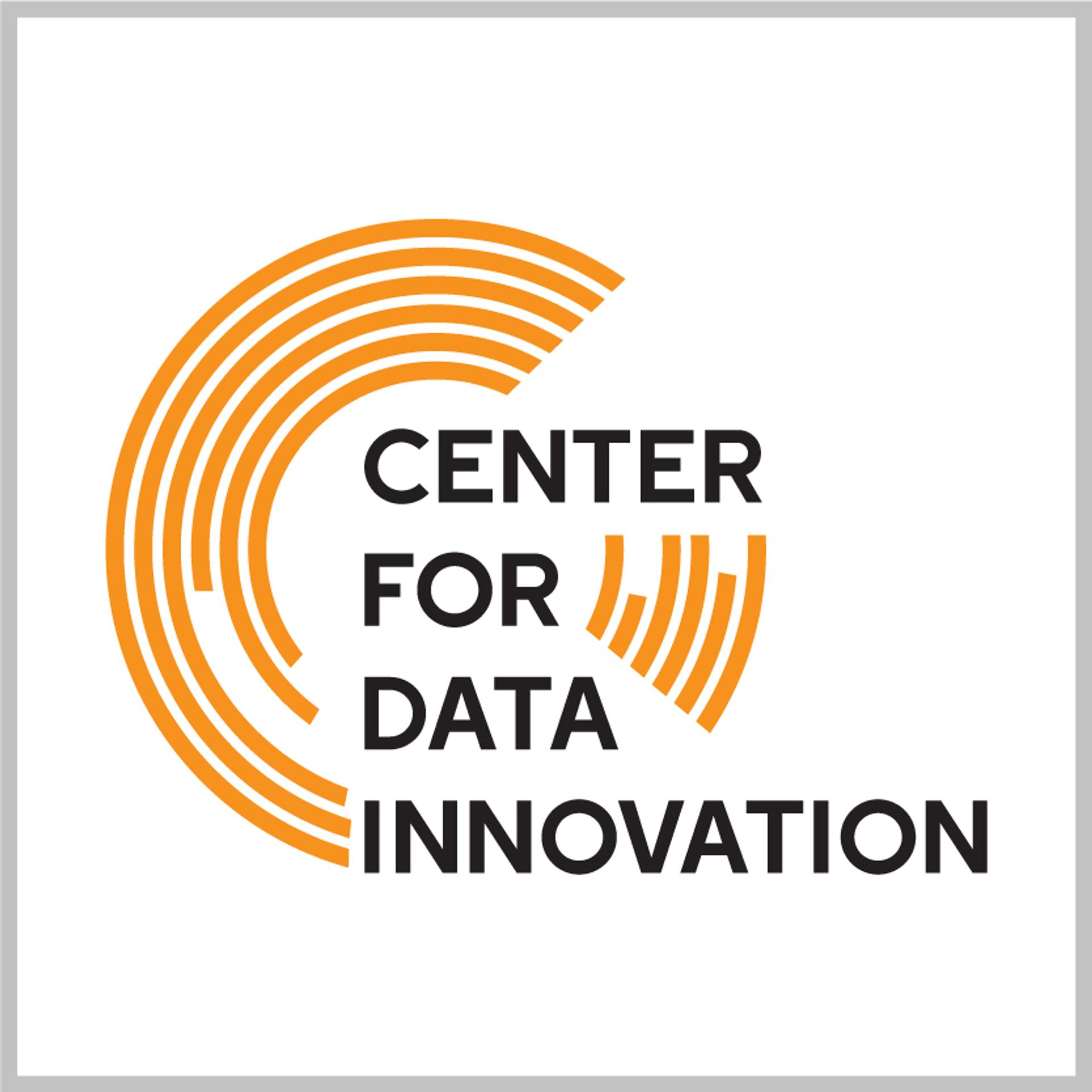10 Steps Congress Can Take to Accelerate Data Innovation
To unlock the benefits of data-driven innovation, policymakers should support publishing data the government already collects, collecting more data that can be put to valuable use, and encouraging industries to make better use of data.
Data is vital to both growing the economy and addressing important social problems, and Congress has many opportunities to pave the way for more use of data in the public and private sectors. This report lays out 10 concrete steps Congress can take in 2017 to accelerate how data is collected, shared, and used in the United States.
Throughout the economy and society, greater use of data is powering new insights that improve decision-making, enable new products and services, and enhance quality of life. Government may not be the main engine of this innovation, but it can and should play a vital role in accelerating and shaping the use of data to boost economic growth and benefit society. In particular, policymakers can support these efforts through policies that make government data available to the public, enable the collection of new types of data, enhance the design of databases and other information systems, and improve regulations about how the private sector uses data.

This report outlines 10 such opportunities. Each represents an actionable recommendation for Congress to improve how data is collected, shared, or used by the public, industry, or government. It also shows the types of unintended consequences that arise from policies that limit the collection and use of data. This agenda is not intended to be an exhaustive list of everything Congress could accomplish on data issues; rather it is a timely to-do list for policymakers looking to proactively support data-driven innovation. These are specific policy recommendations with clear paths to implementation. Many have already withstood scrutiny by industry groups, nonprofits, and other stakeholders and generally enjoy bipartisan support. And all would generate economic and social improvements, whether by promoting government transparency, reducing inefficiencies, empowering consumers, or creating new opportunities for the private sector.
As such, Congress can accelerate data innovation by:
Publishing data the government already collects, including:
1. Establish a permanent open-data policy for the federal government,
2. Allow USDA to publicly release Common Land Unit data, and
3. Establish an API for legislative data.
Collecting more data that can be put to valuable use, including:
4. Develop a complete 3D National Elevation Dataset,
5. Require corporate data transparency, and
6. Address the LGBT data gap.
Encouraging industries to make better use of data, including:
7. Adopt universal patient identifiers for healthcare,
8. Incentivize adoption of electronic health records for mental-health providers,
9. Foster use of alternative credit data, and
10. Ensure consumers can access their utility data.


